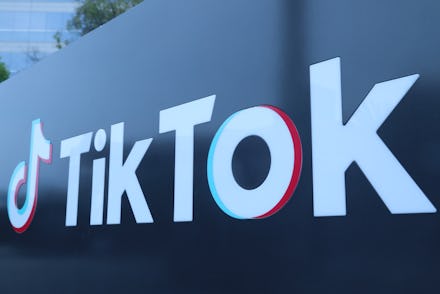TikTok goes on the offensive, suing the Trump administration

The ongoing standoff between TikTok and Donald Trump is going to court. TikTok announced Monday that it is suing over the administration's decision to issue an executive order that would ban the platform over national security concerns related to the app's alleged ties to the Chinese government. "We do not take suing the government lightly," the company said in a press release. "However we feel we have no choice but to take action to protect our rights, and the rights of our community and employees."
Trump and his national security advisors have placed a magnifying glass on TikTok in recent months, applying new scrutiny to the app as it continues to grow in popularity. The administration launched a national security investigation into TikTok last November to determine if BtyeDance's $1 billion acquisition of the US-based Musical.ly, which would become TikTok, presents any security risks to the country. By July, shortly after TikTokers trolled a Trump rally that may or may not have led to depressed turnout for the event, Secretary of State Mike Pompeo floated the idea of banning TikTok. Less than a month later, Trump signed an executive order threatening to ban TikTok if its parent company didn't sell operations to a company headquartered in the United States by September 15.
All of this developed rather quickly — too quickly, according to TikTok. The company is arguing that the executive order denied it due process protections provided by the Fifth Amendment and was signed hastily and without valid concern. "The Executive Order issued by the Administration ... has the potential to strip the rights of that community without any evidence to justify such an extreme action, and without any due process," TikTok said.
The company also raised objections to the claims that its app presents any legitimate national security threat. "The executive order is not rooted in bona fide national security concerns,” the complaint states. TikTok also claims that “independent national security and information security experts have criticized the political nature of this executive order, and expressed doubt as to whether its stated national security objective is genuine.”
There doesn't seem to be a consensus on whether or not TikTok truly is a threat to national security, largely because it is challenging to prove or disprove its ties to the Chinese government. The Trump administration has previously cracked down on tech firms that have direct ties to the Chinese Communist Party, including placing bans on equipment from companies like Huawei and ZTE. The push to force ByteDance to sell off TikTok's American operations represents a new strategy, though, and one that may set a precedent for how similar situations are handled going forward. Trump is already threatening similar bans on apps like WeChat, and could potentially look to try to force more foreign companies to divest of their operations in the US when it suits his administration's interests.
While TikTok sues for its life, American companies continue to show interest in taking over the app, should the executive order stand. Microsoft and Oracle have allegedly entered conversations about buying the app, and Twitter has shown some interest, as well. Facebook, meanwhile, appears to be enjoying the prospect of TikTok going away. The company rolled out Reels, a TikTok knockoff, on Instagram this month, and new reports suggest CEO Mark Zuckerberg may have peppered Trump with concerns about TikTok in private meetings. There are a lot of interests at play in the whole ordeal, without much clarity of how genuine any of the parties involved are.